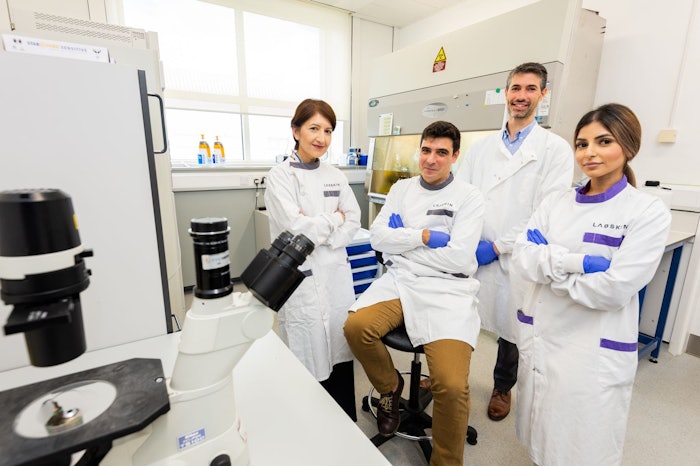
UK-based Labskin and the University of Bradford’s Centre for Skin Sciences have announced that the first commercially available lab-grown pigmented skin-equivalent, known as Labskin M, has been developed. In a joint project, scientists have been able to incorporate melanocytes—the cells that give skin its pigment—into Labskin’s full-thickness human skin models that naturally mimic the skin’s microbiome.
Previously: Gattefossé Announces Two Personal Care Ingredients for Skin Care
These new pigmented models incorporating melanocytes allow Labskin to further assess the safety and efficacy of skin care ingredients and formulations on a greater diversity of skin types, integrating ethnic skin with various microbiomes.
The presence of melanocytes on the skin model also permits the study of causes and alleviation of hyperpigmentation, creates an ideal model to study UV exposure-response and phototoxicity, and opens the door to establishing reproducible melanoma models for the pharmaceutical industry.
Labskin M is a result of the Knowledge Transfer Project (KTP), a UK government program established to encourage collaboration between businesses and universities. Funding was provided by Labskin and Innovate UK, which provides support to organizations to make new products and services.
Jacobo Elies Gomez, Ph.D., academic supervisor and assistant professor in pharmacology in the faculty of life sciences at the University of Bradford said, “Labskin M represents a state-of-the-art organotypic model for the investigation of the biology and cellular behavior of melanocytes in health and disease… There is no other commercially available system of lab-grown skin that includes melanocytes. This opens up huge opportunities for research and could lead to new discoveries, for example with skin cancers. Being able to offer this commercially makes it much easier for other sectors to become involved.”
Professor Julie Thornton, director of the Centre of Skin Sciences, added: “Our work with Labskin is really leading the way in new cutting-edge technology for human skin biology and the skin microbiome, with the advancement of superior ex vivo human skin models. Labskin M is a major development for the industry and one we’re very excited about.”
David Caballero-Lima, Ph.D., chief scientist, Labskin, stated, “This new model is allowing us and our clients to get a deeper understanding about melanin production in healthy and pathological stages, skin toxicology, drug metabolism and the host microbe interaction. It’s a critical development for the cosmetics and dermatological sectors to provide even more precise testing platforms to deliver first class, safe and efficacious products.”










